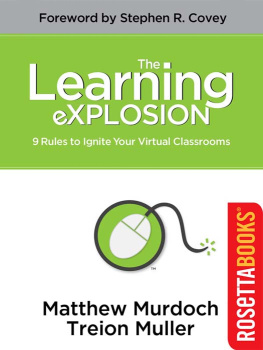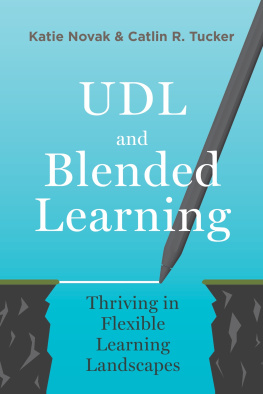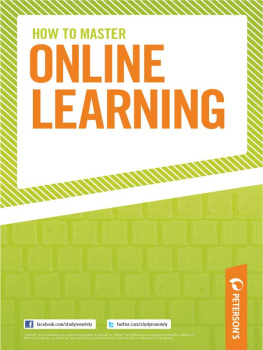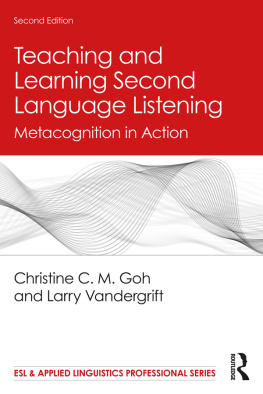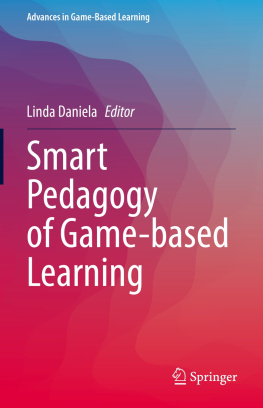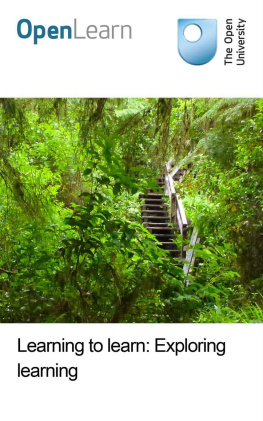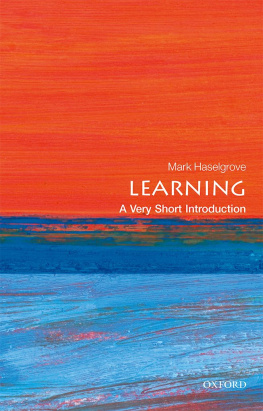

Copyright Bradley Lightbody 2012
The right of Bradley Lightbody to be identified as the author of this work has been asserted by him in accordance with the Copyright, Design and Patents Act, 1998.
All our rights reserved. No part of this publication may be reproduced, stored in a retrieval system, or transmitted, in any form or by any means, electronic, mechanical, photocopying, recording or otherwise, without the prior permission in writing of Collegenet publications.
Any person who commits any unauthorised act in relation to this publication may be liable to criminal prosecution and civil claims for damages.
First published January 2012 by:
Collegenet Limited
53 Windmill Lane
Batley
West Yorkshire
WF17 0NT
United Kingdom
A catalogue entry for this book is available from the British Library.
ISBN 978-0-9563245-1-1
eISBN 978-0-9563245-2-8
Printed and bound in the United Kingdom
by CPI Antony Rowe, Chippenham, Wiltshire.
www.antonyrowe.co.uk

| Acknowledgements |
The author and publisher gratefully acknowledge the following for permission to reproduce copyright material.
Firstly my gratitude to the Director of ncn High Pavement Sixth Form College, Martin Slattery for his commitment to innovation and to ILT Development Champion Andrew Edis for his many suggestions for improvement and his endless enthusiasm and energy. Also thanks to Syed Wajeeh of Fizaconsulting.co.uk for his patience, support and development of the software for the Learning Portal. Quacquarelli Symonds Ltd for permission to quote top university data. The Organisation for Economic co-operation and Development (OECD) for their permission to quote from a range of highly informative international research on different aspects of teaching and learning but in particular, Pisa reports and ILT developments. The Confederation of British Industry (CBI) for permission to quote employability skills surveys 2010 and 2011. Thanks are also due to the following organisations for their permission to reproduce their curriculum models, International Baccalaureate Organisation (IBO), Partnership for 21st Century Skills rainbow model, Cambridge International Examinations Pre-U model and Steve Bolingbroke of the Kunskapsskolan Education Programme (KED) consortium. Many thanks also to Chiki Okodo, Head of Education, World Skills London for an invitation to present a seminar at the World Skills championships in London October 2011 and for permission to reproduce the self employment Skills WheeI. Finally, I and all teachers, owe a considerable debt to Professor John Hattie of Auckland University for his detailed analysis of international research into effective teaching and learning as documented in his textbook Visible Learning 2009.
Every attempt has been made to contact all copyright holders and to gain responses but any omissions will be corrected and addressed on notification.
My deep thanks to my personal Generation Y members Emma, Stuart, Gemma and Paul who keep me up-to-date and to Carol for all her love and support despite too many hours spent in front of a wordprocessor.

| Preface |
Our world is changing rapidly as the electronic age gathers momentum and alters and transforms everything it touches. The internet connected TV is a reality and soon the internet will take centre stage in our living rooms and offer the whole family a highly accessible window on the world. The internet offers unlimited choices of services, entertainment and information. However, it is the mobile connection to the internet via Smartphone and Tablet that will be truly transformational by placing a wealth of information and services literally at our fingertips. In the video rental shops nationwide they are waiting for the video market to move online as we increasingly upgrade to internet connected TVs and simply download films direct to the TV. In the bookshops they are similarly watching the movement of books online as the Kindle, Kobo and Ipad go mainstream and become the primary way to access and read books. Amazon already sells more ebooks than printed books. Many in education have yet to realise that their market is also ripe for download. Why wait for a lesson on Bismarcks foreign policy? A Google search will provide all you need to know in a matter of seconds with the significant majority of the hits from authoritative academic sources. However, how far was Bismarcks foreign policy a success or a failure? The answer to that question is the real learning, not the basic facts of Bismarcks career or policies, and coaching the answer is the real craft of teaching. What are the questions you wish your students to be able to answer? Specify them topic by topic, let the internet provide the facts and the lessons the analysis and the evaluation. The internet will liberate teachers from imparting basic factual information and our students from the chore of writing it down. Visit the Khan Academy www.khanacademy.org and glimpse a future that is already the present. Our pedagogy needs to rapidly shift to embrace independent or i-Learning because we are already falling behind the curve.
Bradley Lightbody
5th January 2012

| The knowledge age |
the illiterate of the 21st Century will not be those who cannot read and write but those who cannot learn, unlearn and relearn.
Alvin Toffler circa 1980
In 1970 the futurist thinker and sociologist, Alvin Toffler, published Future Shock which charted the rise of mass communication, mass culture and the emergence of a global economy as the consumer era gained pace. In the late 1970s the emergence of the silicon chip, with its fast and cheap processing power, raised the potential for modern personal computers to categorise, sort, search and process large volumes of information. Toffler made the far-sighted realisation that industrial society was on the cusp of fundamental change and in his book, The Third Wave, published in 1980, he postulated a movement away from industrial society into a super industrial age or what other writers and thinkers referred to as the post-industrial society, the global society, the information society or the electronic age. Today the term the Knowledge Age has gained currency to reflect the internet as oracle and the rapid shift from 1.0 to 2.0 and now the fast emerging 3.0 level internet technology. However, although internet technology is new the term Knowledge Age is not. In 1968 Professor Peter F Drucker (1909-2005) first published a seminal account of the changing patterns of work and society as the service sector advanced entitled, The Age of Discontinuity. Drucker knew nothing of computers but he devoted a whole section of his book to the rise of the Knowledge Age and lamented the failure of schools to move away from the formal classroom with its single speed I speak and you listen pedagogy. He observed that despite many centuries of technological and social change schools were largely unchanged and that the pedagogy of a modern school would be entirely familiar to a time-traveller from Mesopotamia circa 5000BC. Schools have traditionally made their focus obedience, regimentation and discipline rather than a love of learning, creativity and promoting how to learn. In the days of Socrates (470-399 B.C.), in Ancient Greece children sat in straight rows in strict silence to learn by rote with a slave the Paidagogeo ( hence the term pedagogy ) seated at the back of the classroom whose sole job was to lash anyone who displayed the slightest lapse in concentration. Corporal punishment was abolished in British schools in 1987 but it still remains legal in most parts of the world including many individual American States. Thousands of years later, since the time of Socrates, how far have we come? The traditional pedagogy of a teacher standing at the front of a classroom imparting basic information at fixed times, in a fixed order, to a fixed pace and in a fixed way is largely set in granite. However, the Web 2.0 and the emerging Web 3.0 are releasing unstoppable waves of online learning materials accessible 24-7. By 2020, at the latest, the profusion of authoritative online information will end the ancient role of the teacher as the gatekeeper of knowledge and usher in the i-learning revolution i.e. independent learners and realise Druckers vision of autonomous guided learning. Granite teachers may remain but they will soon face empty classrooms if their lessons only provide basic, factual information. The accessibility of information online should be welcomed because it will free teachers to return to Socrates and to guide and facilitate learning i.e. questioning what students currently know and understand, examining their evidence, challenging them to justify and explain, identifying their misunderstandings and finally coaching all in small groups and one to one to achieve their full potential. The future of teaching is less gatekeeper and more gateway.
Next page

